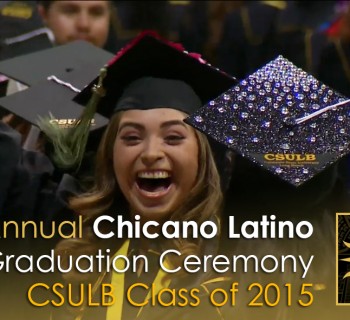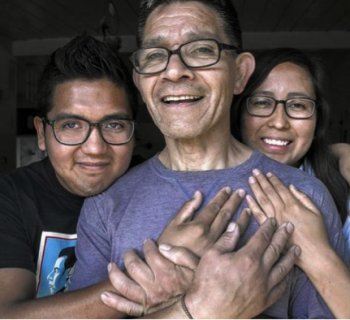Gov. Newsom must act swiftly to appoint a qualified Latino to California’s supreme court.
Opinion by Raul Reyes | TheHill | JAN. 12, 2022 | Photo credit: Justin Sullivan
California Gov. Gavin Newsom has a decision to make — and the clock is ticking. In September, state supreme court Justice Mariano-Florentino Cuéllar announced that he would be stepping down from the high court, leaving his spot open for Newsom to fill. At the time, the governor said in a statement that he “looks forward to considering several highly-qualified candidates” and that he would draw from “a broad, experienced pool of candidates that reflects all aspects of the state’s diversity.” That was four months ago, and the empty seat on the court has not yet been filled.
It’s time for the governor to announce his pick, and he should appoint a qualified Latino.
California’s large Latino population deserves representation on the court, especially since the court rules on issues that directly impact their lives. Having a Latino on California’s supreme court would send a strong message of inclusion and further demonstrate Newsom’s commitment to diversity.
The court consists of the chief justice and six associate justices, each appointed or nominated by the governor. According to its website, in its most recent term the court received nearly 8,000 filings and issued 85 opinions. Its decisions are binding throughout California and are often cited in cases nationwide as well.
But with the departure of Cuéllar, there are no Latinos on the court. That is unacceptable in California, home to the country’s largest Latino population. Latinos are 39 percent of the state’s residents and have been the Golden State’s largest racial or ethnic group since 2014. Newsom must act to ensure that the court reflects the public it serves. Consider that only 11 percent of California judges identify as Latino.
Judicial representation matters.
A 2016 Trinity University study found that Sonia Sotomayor’s appointment to the U.S. Supreme Court increased Latinos’ approval of the court — and increased their trust in the judicial system. In the coming term, California's court will hear cases involving immigration, criminal justice reform, education, discrimination, and reproductive rights. A Latino perspective on California’s highest court is just as essential as it is at the nation’s highest court, where Justice Sotomayor has emerged as a vital liberal voice. In fact, Newsom has an opportunity to make history by nominating a Latina to the court — as no Latina has ever served on California's supreme court.
Newsom has already earned the right to be called one of the most pro-Latino governors in California's history. He was a fierce opponent of the Trump administration's xenophobic immigration policies, and he has appointed Latinos to leadership positions (including the state’s first Latino senator, Alex Padilla). He prioritized vulnerable Latino neighborhoods for the COVID-19 vaccine and extended protections for immigrants. That’s what makes his heel-dragging on this appointment so perplexing.
In political terms, appointing a Latino to the state supreme court would be the smart thing for Newsom to do. He survived the September recall effort, in part, because Latino voters turned out to support him. Research from the UCLA Latino Policy & Politics Initiative shows Latinos strongly led rejection of the recall effort, even in traditionally conservative areas such as Orange County, where more than 80 percent of Latinos voted no. Latinos showed their support for Newsom, and now he can return the favor.
Newsom's nomination of a Latino to the court also would be a fitting tribute to Cruz Reynoso, the first Latino ever to serve on California’s supreme court, who passed away last year at 90.
Of course, no one deserves a judicial appointment based solely on their ethnicity. Yet there are qualified Latino candidates for Newsom to review, and their selection would benefit all Californians.
The elevation of Latino lawyers and jurists is important because it helps establish a pipeline of Latinos for the federal bench. President Biden would not be able to cite his administration’s Latino federal judicial appointees if he were not able to consider Latino judges and justices from the state level. Plus, as the country’s most progressive state, California’s rulings very often influence national policy.
California’s Latinos need equitable representation in their state’s judicial system.







